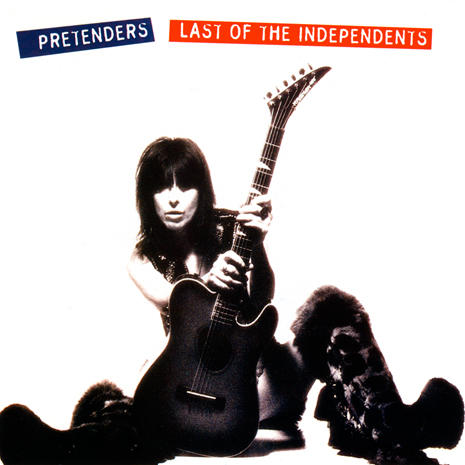This is Joni still amid in the ‘80s, and all the electronics the decade brought forth. Even as sophisticated as the technology got, it still doesn’t fit her. This is not to suggest that she shouldn’t try, but it’s hard to believe she thought these sounds were worth capturing. Sometimes technology can be a means to an end, but when it dominates, it should be effective. The last album had a somewhat successful experiment involving a cigarette machine; the equivalent here is the bed of recordings from TV ads used to illustrate “The Reoccurring Dream”. It makes the point about empty commercialism, but also has us trying to change the channel.
Yet again she feels the need to employ guest celebrity vocalists, two of whom were on the same label: Peter Gabriel gets to duet on “My Secret Place”, since he’d donated his studio, and Don Henley is prominent on “Snakes And Ladders”. Billy Idol trots out his standard whoops and barks on “Dancin’ Clown”, complete with shredding from Steve Stevens and a shorter, just as uncomfortable cameo from Tom Petty. Iron Eyes Cody contributes the Native American chanting on “Lakota”, despite his likely Italian heritage. Willie Nelson duets on “Cool Water”, an update of the old cowboy song. The lack of original material is another bad sign, as the album ends with “A Bird That Whistles”, a.k.a. her interpretation of “Corrina, Corrina”. Performed on acoustic, with only Wayne Shorter doing bird impressions on the sax, it’s also the best track on the album.
Just as jarring is the fact that the first two tracks were originally written for use in American Anthem, which led the wave of movies about male gymnasts. That partially explains the reference to being “born and raised in New York City” on the otherwise enjoyable “My Secret Place”, and the quest for winning a trophy in “Number One”. Political songs fit better; “The Tea-Leaf Prophecy (Lay Down Your Arms)” considers the possibility of romance during wartime, while “The Beat Of Black Wings” not only gives the album its title but relates a conversation with a shattered Vietnam vet.
The guest stars brought Chalk Mark In A Rainstorm some airplay, but seeing as the album appeared in the racks around the same time as her back catalog was made available on CD—and at the “Super Saver” price point—those would have been a much better investment for new fans diving in.
Joni Mitchell Chalk Mark In A Rainstorm (1988)—2







